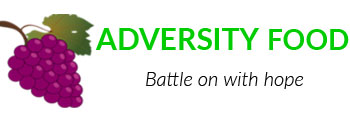By: Tecla Ndambuki.
On the 10th of April (dubbed Autism Awareness Day) the Autism Society of Kenya held various activities to enhance autism awareness. The campaign kicked off with a road show from City Primary School and back and covered parts of Thika Road such as Mwiki, Kasarani, and Zimmerman. It was aimed at sensitizing the society at large to change its perception and accept mentally challenged persons as they are.
During the speeches, people were challenged to rise above the storm of discrimination which is rife in our society. This acceptance would assist those coping with autism as well as their close kin to cope and even come out openly in search of solutions. A lot of people hide their children due to many myths and stigmatization surrounding the condition. Some associate it to witchcraft or God’s punishment for evil doing by either the victim or an immediate family member and some think they can catch it if they are in close proximity to an affected person.
It was made clear that Autism is not contagious and neither is it a result of witchcraft. The campaign courtesy of ‘Amkeni Wakenya’ also informed the gathered crowd that autism is a genetically based neurological condition that hinders or causes delay in speech, social interaction, creativity or imagination to the affected therefore making them live in their own cocoons. The people were made to understand that the condition affects one’s development and while the majority of the affected look perfectly normal-intellectually; autistic persons function at a much lower capacity than their age mates.
The fact was also highlighted that nobody knows what causes autism and neither is it one’s fault. It was stressed that it is only important to understand that some mental impairments can be caused by a variety of factors beyond a human being’s control.
It was also noted that the condition has no known cure to date but it can be contained and the affected helped to achieve their maximum potential. With appropriate education and support services, autistic children can be assisted to live their lives with dignity and independence. This can be achieved through various interventions including physical therapy and dietary measures. The issue of poverty was cited as one reason why some may not access the required therapy and appropriate diet.
After the road show and speeches, a fashion show was also held by the autistic children, where they exhibited various outfits and designs suitable for various occasions. The climax of the event was reached when the Jamhuri High School dancers took to the stage. Other entertainers present included Kayamba Africa, and Nairobi City Primary school. The message on Autism was also conveyed through plays and poems. Pupils from City Primary swept the mood of those in attendance when they recited a poem entitled Ulemavu si Kilema (meaning disability is not inability). And to wrap up the event, there was a wake up call for all to accommodate those amongst us living with Autism.
DON’T LAUGH AT ME
Don’t laugh at me,
don’t call me names.
Don’t get your pleasure from my pain.
In God’s eyes
we’re all the same.
Someday we’ll all have perfect wings. Don’t laugh at me.
By country music artist Mark Wills
Facts about autism
1. Autism is a neurological disorder and associated with three impairments; social communication impairment which results in either total lack of speech or inability to use speech effectively; Social interaction impairment which results in difficulty forming relationships, and impairment of imagination which results in rigid thinking and behaviour and poor capability for problem solving.
2. The condition affects more boys than girls. For 100 parents there is a 5% chance composed of 4% boys and 1% girls.
3. Nobody knows what causes autism. However it tends to run in families and if you get a boy who is autistic, there are high chances of getting another autistic son. Other suggested causes include prolonged labour.
4. Autism is a continuum. No two individuals portray the same symptoms.
5. There are many cases of autism in Kenya. In Nairobi only, there are over 500 listed cases of autism majority of who cannot access appropriate interventions due to financial constraints. These children and young adults’ hopes depend on well wishers.
6. Grants from the Government of Kenya cover 40% of the Autism programme in City Primary School. There is need for increased funding and to have such centres throughout the country.
For more information contact:
Autism Society of Kenya,
P.O. Box 1762-00200, Nairobi
Limuru Road, Saraj Plaza.
Tel.3742603/3742582
E-mail autismkenya@gmail.com
This article first appeared in the June–July 2010 issue of Woman of Faith magazine. Copyright Woman of Faith Magazine. All rights reserved. For comments write to editor@faithfood.net
